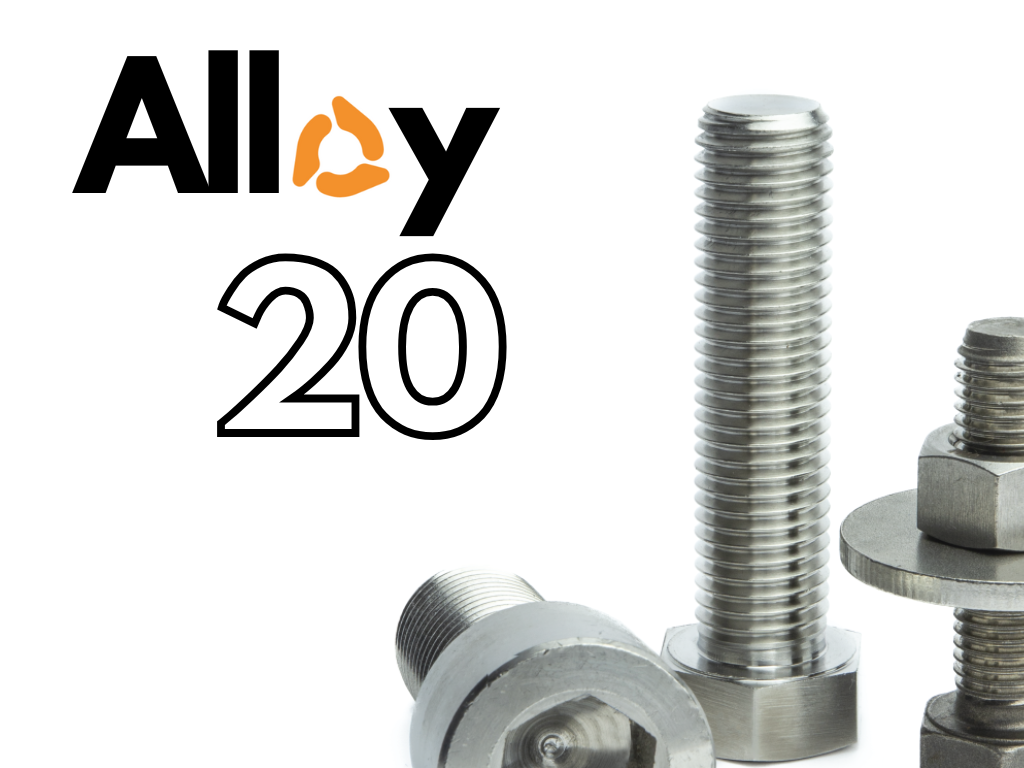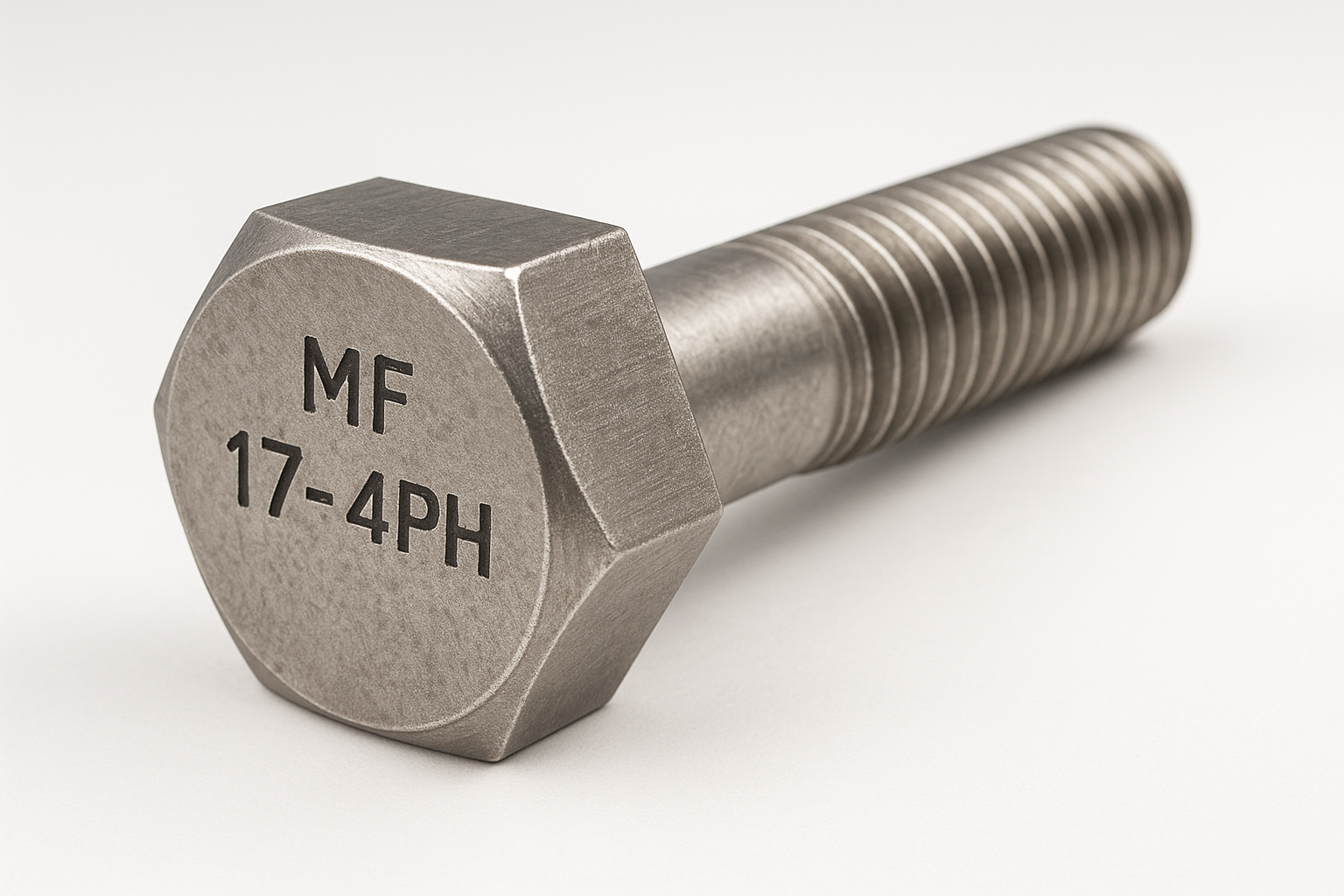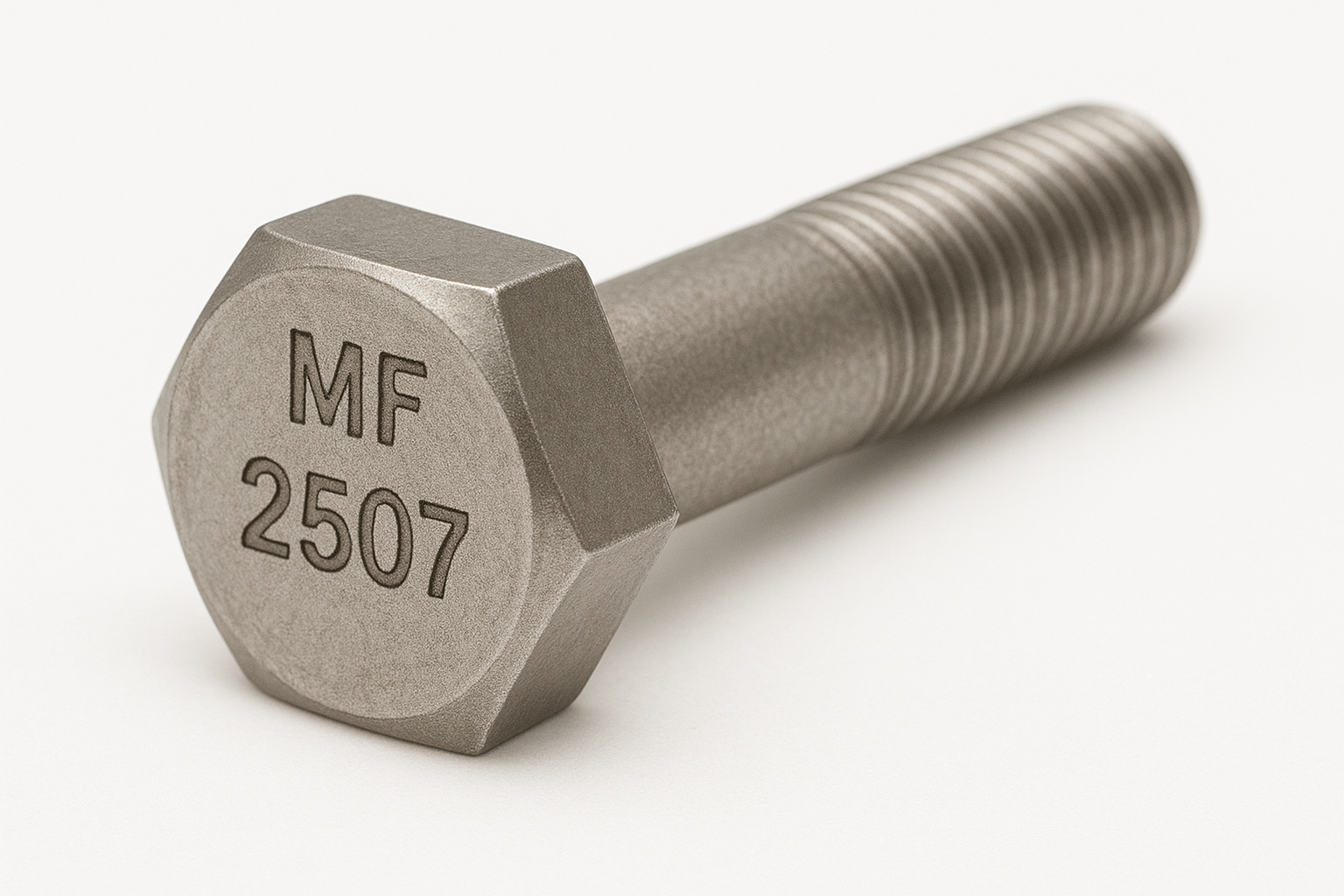Alloy 20 is an iron-based alloy with a high content of nickel (30-38%), chromium (19-21%) and molybdenum (2-3%), designed to resist corrosion in chemically aggressive environments, especially in the presence of acids. Below are some detailed considerations of why you might choose to use screws in Alloy 20 over other specific nickel alloys, along with a comparison with INCONEL® 625, HASTELLOY® C276 e MONEL® 400.
Features of Alloy 20 Screws and Bolts
Corrosion Resistance in the Presence of Sulfuric Acid and Other Strong Acids
- Alloy 20 is specifically designed to resist corrosion in sulfuric acid, one of the most corrosive acids used in industry.
- The combination of nickel, molybdenum and chromium provides resistance to pitting (point corrosion) and crevice corrosion (corrosion in crevices), phenomena common in acidic environments.
Chloride Corrosion Tolerance
- Thanks to nickel and molybdenum, Alloy 20 screws offer resistance to stress corrosion cracking from chlorides, making it suitable for chemical processes and marine environments.
Mechanical Resistance at Moderate Temperatures
- Screws in Alloy 20 are suitable for applications up to about 315 °C, but for higher temperatures, screws in other nickel alloys should be considered.
Competitive Costs
- Compared with screws made of high-nickel alloys such as INCONEL® 625 and HASTELLOY® C276, Alloy 20 screws are more economical while maintaining excellent chemical resistance.
Comparison with Other Nickel Alloys
INCONEL® 625 screws and bolts 1.
Advantages over Alloy 20:
- Superior resistance to high temperatures (up to 980 °C).
- Excellent resistance to oxidation and corrosion in high temperature environments.
Disadvantages compared with screws in Alloy 20:
- Much higher costs.
- Less optimization for resistance in specific acids such as sulfuric acid.
- More difficult to process and produce.
2. screws and bolts made of HASTELLOY® C276
Advantages over Alloy 20 screws:
- Superior chemical resistance in more complex environments, such as mixed acids.
- Enhanced resistance to pitting and crevice corrosion in extremely aggressive acidic environments.
Disadvantages compared with screws in Alloy 20:
- Significantly higher costs than Alloy 20.
- Increased difficulty in machining, which increases the cost of manufacturing complex screws or components.
3. MONEL® 400
Advantages over Alloy 20 screws:
- Excellent corrosion resistance in marine and saline environments.
- Superior resistance to alkali and hydrofluoric acid.
Disadvantages compared with screws in Alloy 20:
- Lower chemical resistance in oxidizing acids such as sulfuric acid.
- Not optimized for high chloride environments and specific acids.
Summary of Performance
Screws and bolts in Alloy 20: Excellent resistance to sulfuric acid, good workability and medium cost.
INCONEL® 625 screws: Excellent resistance to high temperatures, but higher costs.
HASTELLOY® C276 screws: Excellent chemical resistance, but high cost and difficult workability.
MONEL® 400 screws: Excellent resistance in marine environments, but less effective in oxidizing acids.
Conclusions
Screws made of Alloy 20 are an excellent choice for applications in acidic environments, particularly with sulfuric acid, due to their corrosion resistance, competitive cost and good workability.
However, for higher temperatures or extreme environments (e.g., mixed oxidizing acids), alloys such as INCONEL® 625 or HASTELLOY® C276 are more appropriate, although more expensive. For applications in less aggressive environments, such as marine or alkali environments, MONEL® 400 may be a viable choice.
The choice must consider the operating environment, resilience requirements, and available budget.



